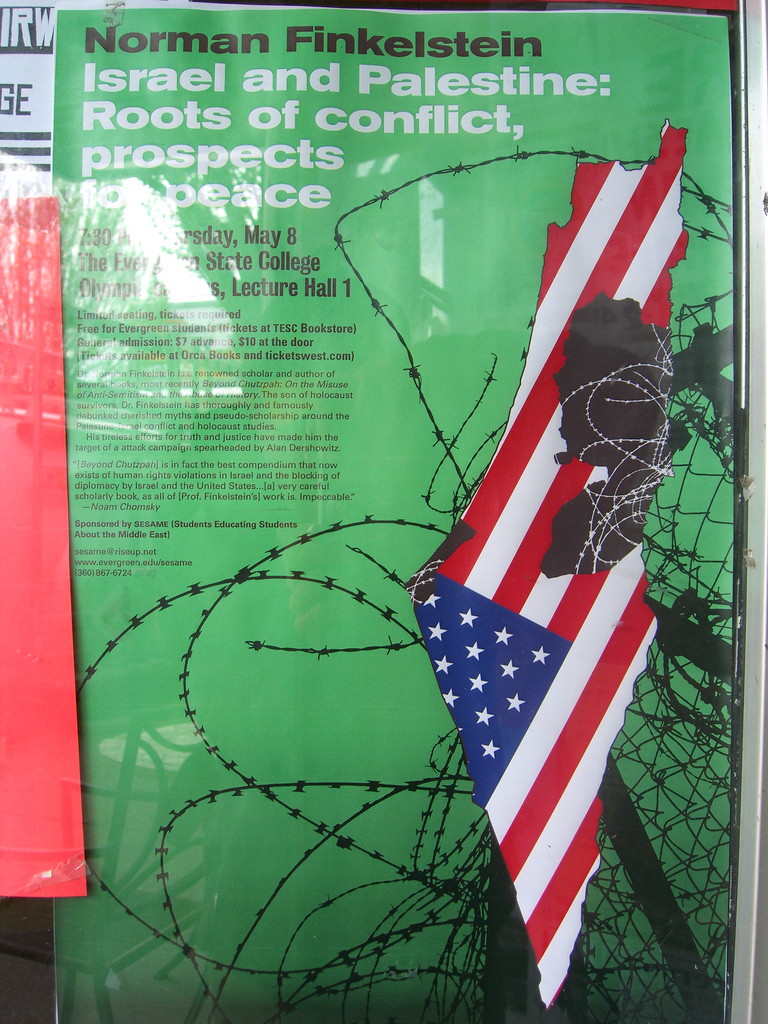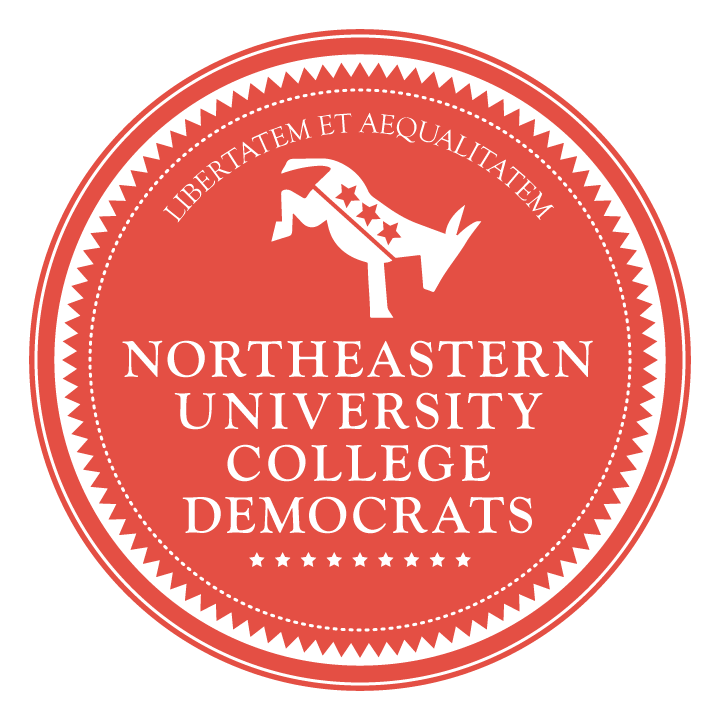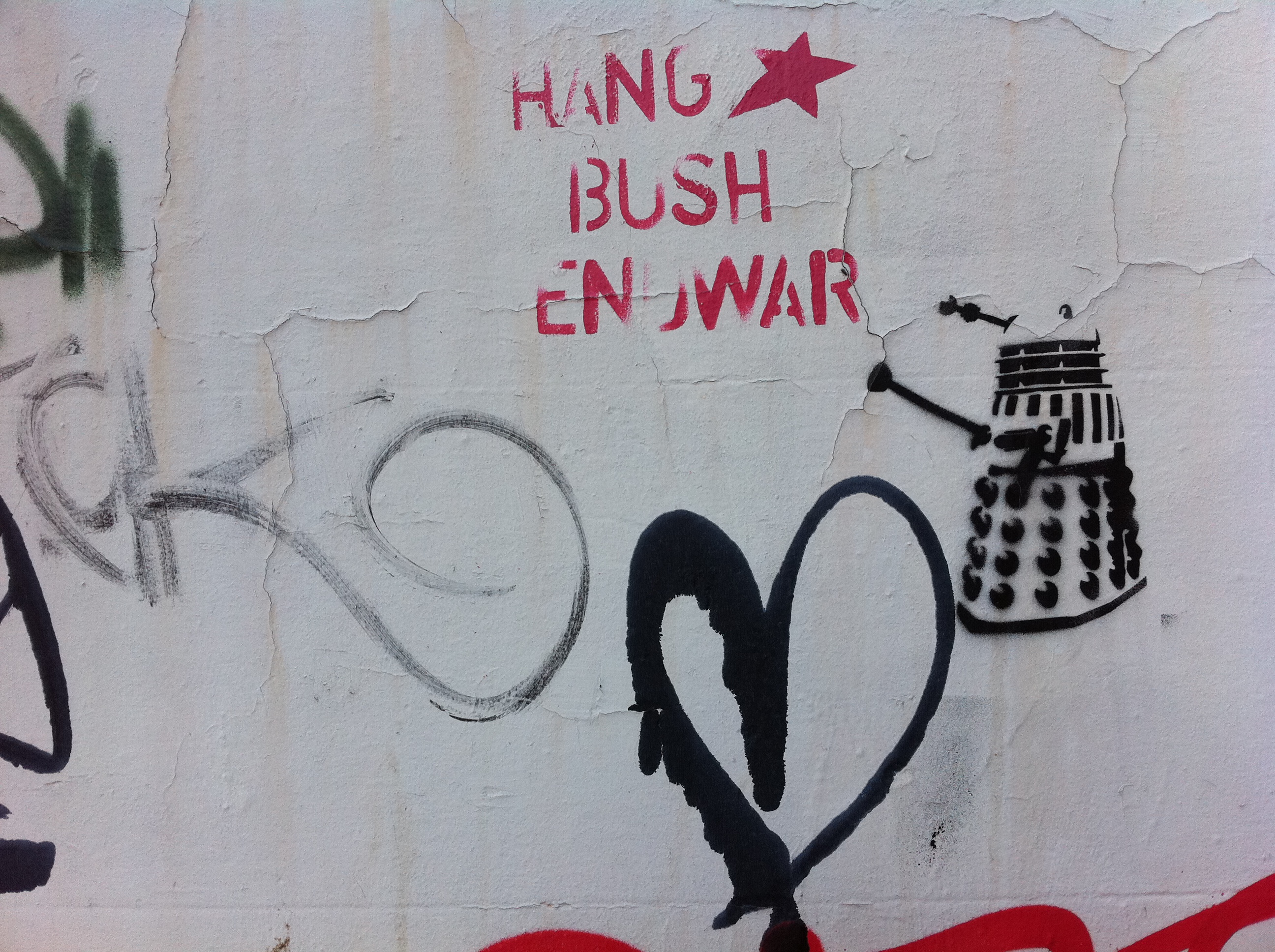
Over the past week, two student groups and one individual brought the stark divisions of the Israeli-Palestinian Conflict home to root at Northeastern University. On December 1st, Northeastern University Students for Justice in Palestine (NU-SJP) invited Norman Finklestein, a prolific and highly controversial scholar on Levantine politics to deliver a lecture at the university entitled “Palestine/Israel and the New Middle East.”
Though professor Finklestein’s lecture contributed to political discourse on campus and in-fact ignited it, the lecture also brought to light the stark divisions and polarization seen in campus activism around the conflict.
Professor Finklestein’s contentious positions on the Israeli-Palestinian conflict and Zionism are widely published and well known, as such his lecture was not noteworthy as much due to the content, but rather the context in which it occurred; the growing phenomenon of college-age activists organizing around the conflict.
The most ready metaphor that comes to mind when analyzing university activism around Israeli-Palestine is what I’ll call ‘dual Sisyphus disorder’– with the battle lines drawn and starting positions set, both sides are attempting to push the same boulder up a hill, but neither is willing to accept the help of their foe to achieve that end. True, there may be some cooperation here and there, in which they succeed in pushing the boulder to the midway point, but by and large both sides operate with blinders on and as such the summit remains ever elusive.
At its root, the failure of both sides to see how to get the boulder up the hill is because they don’t understand why the other side is working against them (taking into account the foundational differences which separate them).
Members of NU-SJP had a right to be angry when students from NU Hillel and Huskies for Israel (HFI) first attempted to have their event cancelled, their funding revoked, and contemplated tactics like ‘occupying’ the auditorium and filling it to capacity. NU-SJP’s anger was not unfounded or irrational; their ability to freely exercise their right to speak was put in jeopardy, on a college campus nonetheless, which to most is a beacon of the free exchange of viewpoints and ideas.
While their angst is not irrational, they’re reaction, in which they vociferously criticized the tactics used by Hillel and HFI, is ever-so slightly hypocritical.
Since 2001, when Students for Justice in Palestine was first established at UC Berkeley, the group and its auxiliary branches have interrupted hundreds of pro-Israel events and lectures at college campuses across the nation. They have staged walk outs, fact-checks, mic-checks, and a slew of other tactics in an attempt to prevent speakers from delivering their messages.
To cite a few examples, in February 2010, SJP members at UC Berkeley interrupted a lecture by the Israeli Foreign Ministry’s deputy legal adviser, Daniel Taub; they did so by staging a coordinated walk-up in which they assembled in front of the speaker’s podium, taped their mouths shut while holding signs which read “turn your back on war-crimes,” and stood in silence until they were escorted out by police. Similar tactics were used in April of this year when SJP members at Brandeis University loudly interrupted an event by six members of the Israeli-Knesset.
This is not to say that pro-Israeli students do not participate in their own forms of disruptive action; protesting Norman Finklestein’s lecture is but one example and I am sure that there have been numerous pro-Palestinian events boycotted and protested by these groups. However, my general impression is that by and large pro-Israeli tactics have focused more on organizing around the events rather than inside of them (though I welcome any evidence to the contrary and if sufficient, will gladly offer a redaction of this statement).
Taking into account how Northeastern University’s pro-Palestine contingency reacted to numerous attempts to thwart their own lecture from taking place, I wonder how they would act if someone like Israeli Prime Minister Benjamin Netenyahu or foreign minister Avigdor Lieberman were to come and speak at Northeastern; would they take the noble road and protest outside and around the event, but not disrupt its commencement, or would they utilize the very tactics they had just derided.
I believe that in holding with democratic traditions of free debate and discourse, affected and interested parties should not focus their energies on curtailing each other’s right to speak and assemble; they should not focus their crosshairs on one-another but rather, with sufficient awareness having already been raised, on policy makers, both at home and abroad. Doing so would be the fastest way for both sides to get the boulder atop the hill.


